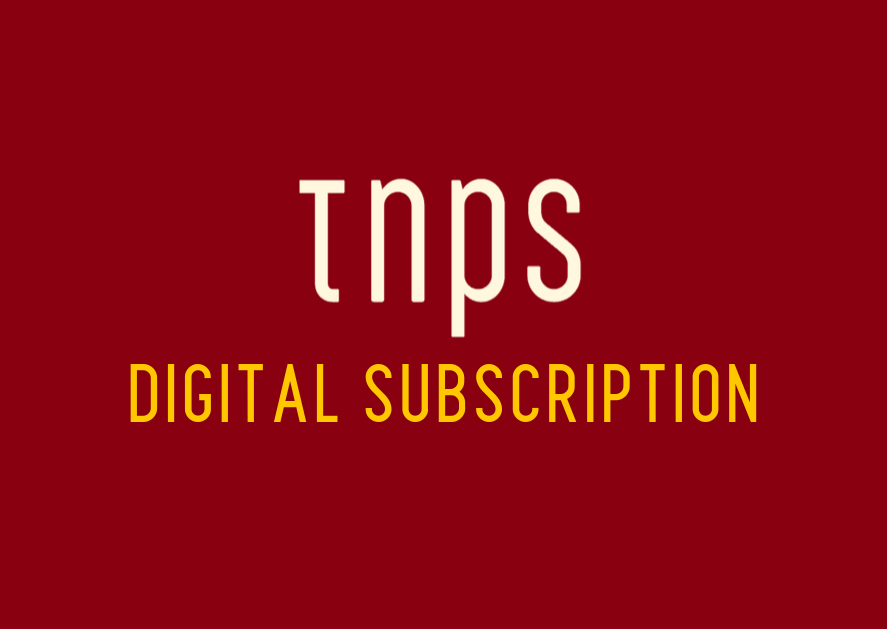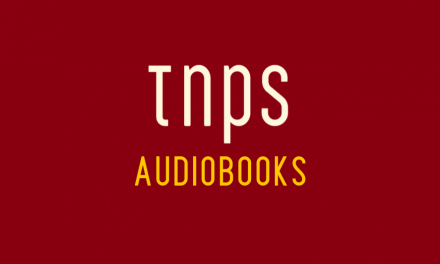BookBeat CEO Niclas Sandin, for all his bold ambitions and aspirations, has his hands tied by Bonnier’s purse strings, and BookBeat’s ability to compete with Storytel, Nextory and the many other streaming players out there in the wider world is and will be largely dependent on how far Bonnier is willing to go.
There’s no surprises with the news from Bonnier-owned Sweden-based BookBeat that is has finally launched its audiobook and ebook subscription streaming service in Norway, taking its total market count to nine, although the official press release says eight (more on that below).
As TNPS reported back in July, when BookBeat launched in Austria and Switzerland it said the plan was to launch in Norway before the year’s end.
In that press release BookBeat CEO Niclas Sandin also assured us BookBeat was in discussion with publishers in,
Several new European markets where we plan to launch in the coming year.
Said coming year will take us through to July 2022, and with Norway now a reality we might therefore anticipate one or two more launches in H2 2022.
More on BookBeat’s expansion prospects below. First a quick look at the official press release from BookBeat to get the super-polished shiny take from BookBeat itself, with a couple of TNPS interjections for good measure to keep our feet on the ground:
BookBeat –
BookBeat is launched in Norway today. During the autumn, negotiations have been ongoing with the major local publishers and the service has been translated into Norwegian. Agreements have already been reached with Cappelen Damm, Gyldendal, Vigmostad & Bjørke, Strawberry and HarperCollins Norway, which will deliver their titles to the service, and users will soon be offered a catalog of more than 500,000 audio and e-books.
TNPS –
While all the major streamers carry ebooks in most markets they often don’t rate a mention in the press releases, and what we don’t know here is how much of that half million strong catalogue is actually audiobooks and how much ebooks. For the consumer that matters a little, in that one expects to pay a higher price for an audiobook subscription than for an ebook subscription, but for most consumers what matters most will be how many big name authors they will have access to as part of the monthly plan. BookBeat has of course taken that into account:
BookBeat –
Finally! We have long had the ambition to launch in Norway when all our data shows an incredible potential to reach more Norwegian listeners. We will do this by offering a fantastic user experience where we will take the lead in presenting the best books from the best authors and publishers, as well as introduce more flexibility in customer offerings to get more people to listen. In the long term, the goal is to reach at least 100,000 Norwegian users.
TNPS –
“Our data” reflecting that BookBeat is notionally available across most of Europe, in stark contrast to Nextory and Storytel where they operate one country (or hub) at a time.
100,000 paying subscribers? Actually BookBeat says “100,000 Norwegian users” which could mean something else entirely, but it is of course paying subscribers that keep the lights on chez Sandin, so the bigger question unanswered is how BookBeat defines the “long term”?
Norway’s publishing trade journal Bok365 pressed Sandin on this and he said:
BookBeat –
As soon as possible, and we will invest a lot to achieve that goal. During the first nine months of the year, we increased the number of users by 47 per cent and revenues by 39 per cent (all BookBeat markets). We aim to reach 600,000 paying users at the turn of the year and to land around SEK 700 million ($70 million) in turnover this year.
TNPS –
With 600,000 subscribers across all the BookBeat markets that would mean Norway equaling almost 17% of the BookBeat current total subscribers. Not impossible, of course – Norway is a country of 5.3 million subscription-savvy internet users.
But just how many digital book streaming platforms can a small minor-language country like Norway – with a total population smaller than that of London – meaningfully support?
William Jakoby, Head of Expansion at BookBeat, explained:
BookBeat –
We are the streaming service that receives the highest average rating from users in all our core markets, and we have the same ambition for Norway. The Norwegian team together with the 130 other stars at the Stockholm office will contribute to it, but above all it is about us being able to offer the best books in the service, which we can now largely thanks to all agreements we have made with leading publishers, says.
TNPS –
Core markets? This is where it gets interesting. BookBeat says Norway is BookBeat’s eighth core market where the service is located and translated.
BookBeat –
When we launch the service today, we give Norwegian listeners a taste of BookBeat. In the coming months, users will quickly notice a sharp increase in content in the service. We are really looking forward to showing why we are the best service for both the users, the authors and all the publishers who work with us. (William Jakoby again.)
For those of us who follow the streaming scene those comments might arouse a feeling of déjà vu.
This from BookBeat parent Bonnier way back in March 2017:
Bonnier Books started BookBeat in 2015 with a clear mission: be part of creating a sustainable digital market for primarily audiobooks while driving growth among new target audiences. As the next stage in the process, the digital book service has started up for (…) users.
It’s the third market following broad launches in Sweden and Finland during 2016. BookBeat’s CEO Niclas Sandin talks about expanding into the new market.
Why did you choose (…) as your next market?
For us, the (…)market was an obvious choice. It’s one of Europe’s biggest but also is the fastest growing when it comes to digital audiobooks. Where you have a new market forming, it’s always good with competition, and we plan to be part of driving the continued growth there. It’s also that (…)-speaking countries are one of the focus regions for international growth for Bonnier Books.
How are you launching the service?
There’s no reason to change the concept that we’ve got in Sweden and Finland when it comes to first getting a handle on understanding users and what drives them, and then putting the pedal to the metal. So we’re going to start out in the first few months by testing different types of marketing while we fill in our catalogue with new publishers and great books. Once we feel we have a good grasp on the (…) market, we’ll plan on upping our pace later in the spring.
Heady days indeed! There was no stopping BookBeat back in March 2017. A third market!
Now of course it is eight core markets, but curiously the one mentioned above is not among them. It’s still operational, but not as you’d know it. More a case of treading water until the publishers in that market finally get around to the idea that subscription is the future of publishing. And meanwhile, let’s not mention it in our press releases when there’s so much positive news from BookBeat every quarter.
But for the record, BookBeat UK is an entity, and TNPS looks forward to the day it becomes a meaningful player in the UK book market. Don’t hold your breath waiting, but do check out the Bonnier press release from 2017.
Of course the British failure, if we can call it that given BookBeat UK is still there, is down to publisher reluctance to engage with the BookBeat subscription model, not consumer resistance.
But what chance BookBeat flourishing in Norway? As we asked above, just how many digital book streaming platforms can a small minor-language country like Norway – with a total population smaller than that of London – meaningfully support?
Bok365 offers us some useful numbers for the Norwegian market:
Storytel NO (Cappelen Damm / Egmont) is the clear market leader with over 150,000 Norwegian subscribers, while Lydbokforlaget (Aschehoug and Gyldendal)’s Fabel, which launched about the same time as BookBeat UK, was already at 50,000 subscribers by summer 2018. No more recent figures available it seems.
Nextory of course launched in Norway in May of this year –
and in October was reporting “strong growth”, but Nextory famously does not share its numbers, so we have to be satisfied with broad indicators.
Bok365 carries an item I’d previously missed, perhaps during one of our periodic internet downtimes:
Ebok.no/Vigmostad & Bjørke also announced in early May a major investment, where they would launch a power service together with Coop – but since then it has been quiet.
In any case Ebok.no is not in any way a pretender to the Norwegian streaming market throne, and the launch of first Nextory and now BookBeat in this small market may well mark the beginning of the end for Ebok.no.
Bok365 also carries an interview with Bonnier Books CEO Håkan Rudels, which confirms the TNPS headline that a price war is on the cards.
The Norwegian market is important to us, also for BookBeat. There we are willing to use the tools that are needed. Subscription price will be a natural tool for entering a market. And then I think you can safely predict that 2022 is the year that the most money will be spent on marketing books and literature in Norway ever.
Quoting Swedish trade journal Svensk Bokhandel Nok365 notes that BookBeat had total losses since launch of SEK 450 million ($49 million), down to SEK 79 million ($8.7 million) in 2020, with Sweden and Finland in profit.
So where does this leave us?
On the one hand we have BookBeat entering a mature and proven digital market where audiobooks are a staple and if anything it will be ebooks that are the hard sell.
In that respect this will be interesting to watch as an example of a new and late-arrival competitor in a tiny market.
This is going to be a battle for market share rather than gaining consumer interest in a product already well-established. That makes it easier for BookBeat, given its publisher background and Bonnier’s reputation in the region.
But the price war, while great for consumers, may force down margins for publishers and rival streaming services, and especially Nextory, which only launched in Norway in May and alone among the players does not have its own content, which is of course where the big margins are.
In that respect Bonnier, as a major publisher on the world stage, has a significant advantage over even Storytel, should it choose to heavily push its own content into Norway, even at this late stage. And of course that is one of the clear benefits of owning the platform. It will be BookBeat that decides what gets in front of the subscribers.
But the cold reality is, Bonnier really didn’t have much choice but to have a presence in Norway, if only for sake of appearances, and this begs the question about Bonnier’s – and therefore BookBeat’s – wider ambitions.
Bonnier is a largely Europe-focussed operation and BookBeat wholly so, and it is neither realistic nor likely that Bonnier, deep-pocketed as it is, will be throwing about the kind of cash Nextory and Storytel are attracting from outside investors to fuel their expansion.
While both Storytel and Nextory have adopted acquisition of existing players as way to enter new markets, that seems an unlikely path for Bonnier to pursue, unless it were a publisher-owned platform.
In that respect BookBeat CEO Niclas Sandin, for all his bold ambitions and aspirations, has his hands tied by Bonnier’s purse strings, and BookBeat’s ability to compete with Storytel, Nextory and the many other streaming players out there in the wider world will be largely dependent on how far Bonnier wants to go.





